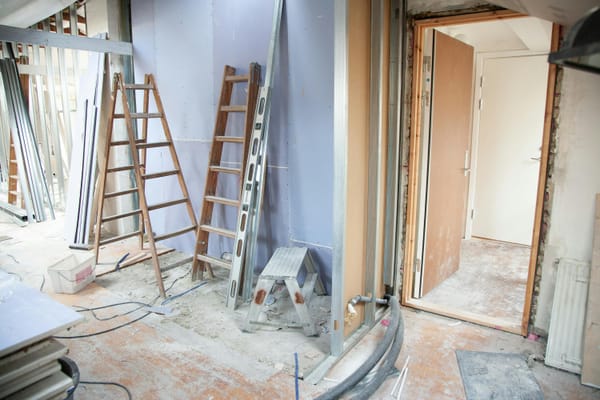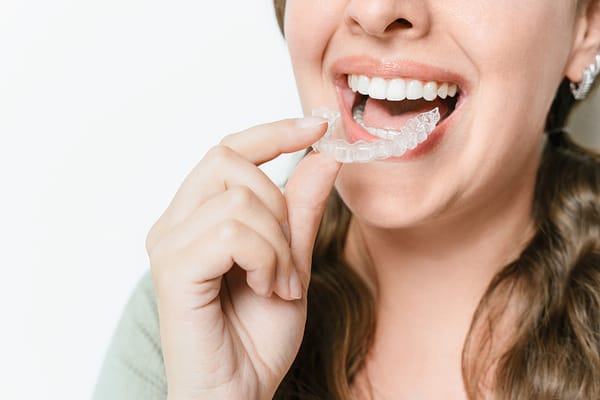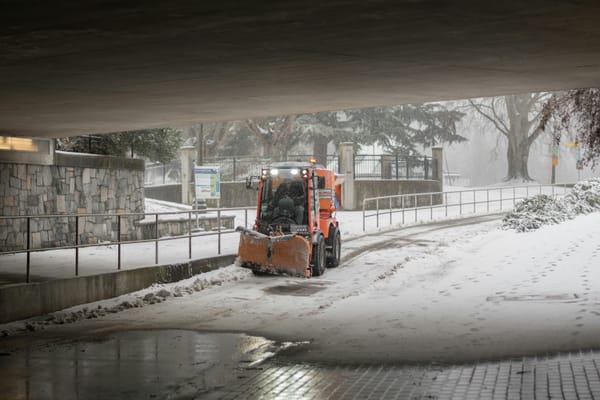Top Roofing Materials for Denver Homes and Businesses

When it comes to roofing in Denver County, not all materials are created equal. The unique climate conditions of the region—including intense sun exposure, frequent hailstorms, fluctuating temperatures, and heavy snowfalls—demand roofing solutions that offer both durability and efficiency. For homeowners and small business owners alike, selecting the right roofing material is one of the most important long-term investments you can make.
In this article, we’ll examine the most effective roofing materials for properties in the Denver area. We’ll explore each option’s strengths, weaknesses, costs, and suitability for Denver's climate so you can make an informed decision when it’s time to upgrade, replace, or repair your roof.
For help with selecting and installing the right material, you can consult with a Diamond Certified roofing contractor in Denver County.
Asphalt Shingles: Cost-Effective and Popular
Asphalt shingles are the most commonly used roofing material in the United States, and they remain a top choice in Denver as well. Their affordability, ease of installation, and variety of color and style options make them appealing to both residential and commercial property owners.
However, standard asphalt shingles can struggle under Denver's intense UV exposure and may degrade faster at high elevations. That’s why many homeowners opt for impact-resistant asphalt shingles, which offer added durability against hail and wind.
If you're working with a Denver roofing company, ask whether Class 4 impact-rated shingles are available—they may even help you qualify for a discount on your homeowner's insurance.
Pros: Affordable, easy to install, available in many colors/styles
Cons: Shorter lifespan than other materials, prone to UV damage unless upgraded
Best For: Budget-conscious homeowners and rental properties
Metal Roofing: Durable and Energy Efficient
Metal roofing has gained popularity in Denver thanks to its long lifespan (40-70 years), resistance to extreme weather, and reflective properties. Metal roofs excel in snowy climates because snow easily slides off the surface, reducing snow load concerns. Additionally, metal reflects sunlight, which can help lower cooling costs during Denver’s hot summers.
Popular options include standing seam panels, corrugated metal, and metal shingles. While more expensive upfront, metal roofs often require fewer repairs over time.
Commercial property owners often favor metal for its clean appearance and low maintenance needs. If you're planning an upgrade, a licensed professional specializing in roof repair in Denver, CO can walk you through available options and installation timelines.
Pros: Extremely durable, fire-resistant, energy-efficient
Cons: Higher upfront cost, can be noisy without proper insulation
Best For: Long-term homeowners, commercial buildings, energy-conscious properties
Clay and Concrete Tiles: Stylish and Resilient
Clay and concrete tile roofs provide excellent resistance to sun damage, hail, and wind. These materials are commonly associated with Mediterranean-style architecture but are increasingly used in Denver for their beauty and strength.
Clay tiles are extremely UV-resistant, making them an ideal choice for Denver's high-altitude sun. Concrete tiles, though heavier, are more affordable and offer similar durability.
Keep in mind that both options are heavier than other roofing materials, which may require additional structural support. Any Denver roofing company experienced with these materials will ensure your building is adequately reinforced.
Pros: Long lifespan (up to 100 years), highly resistant to weather
Cons: Expensive, heavy, more complex installation
Best For: Luxury homes, historic renovations, areas with strict HOA guidelines
Slate Roofing: The Ultimate in Longevity
Slate roofs are made from natural stone and can last more than a century with proper care. Their elegant appearance and unmatched durability make them one of the most prestigious (and expensive) roofing options available.
Slate is ideal for Denver’s climate due to its ability to withstand freeze-thaw cycles, hail impact, and fire. However, its cost and weight are considerable drawbacks.
If you're considering slate, you must work with professionals who have specific experience with slate installation and restoration. Seek advice from a Diamond Certified roofer in Denver County before making this investment.
Pros: Natural appearance, exceptional lifespan, high-end value
Cons: Very expensive, heavy, fragile under improper pressure
Best For: Historic homes, premium residences, long-term property holders
Synthetic Roofing Materials: Modern and Versatile
Synthetic roofing products, such as polymer shingles or rubber slate, are designed to mimic the appearance of traditional materials like wood or slate, while offering better impact resistance and reduced weight.
These synthetic options are increasingly popular in Denver because they combine weather resistance with aesthetic flexibility. They're also often made from recycled materials, making them a good eco-friendly option.
Many synthetic shingles carry Class 4 impact resistance ratings and high fire resistance—making them perfect for Colorado’s unpredictable weather.
Pros: Lightweight, impact-resistant, low maintenance
Cons: Newer material type, may lack long-term performance history
Best For: Eco-conscious homeowners, modern renovations, HOA-restricted communities
Wood Shakes and Shingles: Natural but High-Maintenance
Wood shakes and shingles offer a rustic, natural look that blends well with Denver's mountain-inspired architecture. Cedar is the most commonly used wood due to its resistance to insects and rot.
However, wood roofing is more susceptible to fire and requires regular maintenance, including sealing and treatment. In dry areas with wildfire risk—which includes some parts of Denver County—it may not be the safest or most economical choice.
Some jurisdictions limit the use of wood roofing altogether unless it's specially treated for fire resistance. Make sure to confirm regulations with your roof repair Denver CO contractor before proceeding.
Pros: Attractive appearance, decent insulation properties
Cons: Fire risk, requires regular maintenance, limited lifespan
Best For: Mountain homes, older properties looking to preserve style
Flat Roofing Options: Best for Commercial Properties
Many commercial buildings in Denver feature flat or low-slope roofs, which require specialized materials to prevent leaks and support drainage. The most common options include:
- TPO (Thermoplastic Polyolefin): UV-resistant, energy-efficient
- EPDM (Ethylene Propylene Diene Monomer): Durable rubber material, ideal for all seasons
- Modified Bitumen: Multi-layered asphalt for added thickness and water resistance
These materials are not only durable but also allow for the installation of rooftop HVAC systems, solar panels, or green roofing features. Maintenance and timely inspections are essential due to pooling risks, especially during snowmelt or heavy rain events.
Pros: Functional, cost-effective for large roofs
Cons: Aesthetic limitations, prone to drainage issues if improperly installed
Best For: Commercial buildings, multifamily units, warehouses
Green and Solar Roofs: Sustainable and Forward-Thinking
With Denver’s commitment to sustainability, green and solar-integrated roofs are becoming increasingly popular. Green roofs include living vegetation and offer insulation, stormwater management, and aesthetic value.
Solar roofs, including integrated solar shingles or mounted panels, offer long-term savings on utility bills and may qualify for rebates or tax credits in Colorado.
While initial costs are higher, these roofing systems offer compelling ROI for eco-conscious property owners. A certified Denver roofing company can assess structural readiness and help determine eligibility for local incentives.
Pros: Energy savings, environmental benefits, modern appeal
Cons: High upfront cost, complex installation, maintenance required
Best For: Environmentally conscious homeowners, modern commercial buildings
How to Choose the Right Roofing Material for Your Property
Selecting the ideal roofing material involves balancing several factors:
- Climate Compatibility – Choose materials that resist UV, hail, wind, and snow.
- Budget Constraints – Weigh upfront costs against long-term durability.
- Architectural Style – Ensure aesthetic harmony with your property.
- Regulations and HOA Guidelines – Verify restrictions before installation.
- Longevity and Maintenance – Understand your ability to maintain the roof over time.
Whether you need a new roof or a reliable repair, always consult local experts. Diamond Certified roofing contractors in Denver County offer vetted services with proven customer satisfaction.
Final Thoughts: Invest Wisely in Your Roof
The right roofing material can mean the difference between a resilient structure and one plagued by repairs. Denver’s climate challenges require thoughtful consideration and professional insight. From affordable asphalt to high-end slate, there is a roofing solution suited to every need and budget.
Whether you're a homeowner looking for curb appeal or a business owner protecting a commercial asset, working with a qualified roof repair Denver CO specialist ensures you make a long-term investment that pays off.
For trustworthy guidance and services tailored to local needs, contact a Diamond Certified Denver roofing company today.



